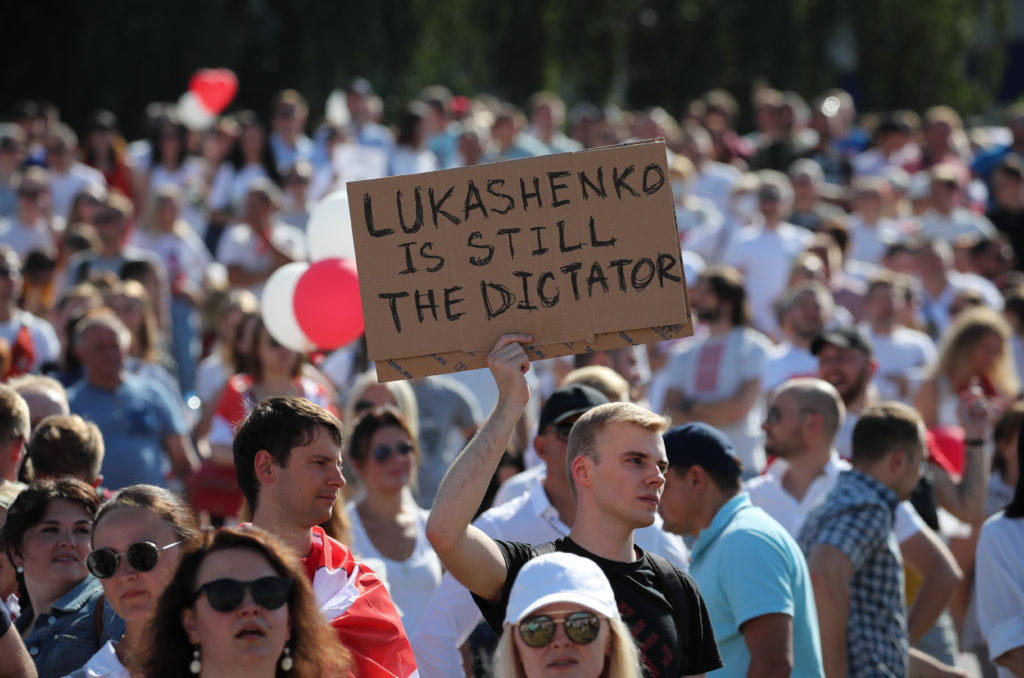MINSK
The best-known independent media outlet in Belarus was shut down by authorities in a move denounced by the ex-Soviet state’s weakened opposition and by Western countries as a further attempt by President Alexander Lukashenko to snuff out all objective news coverage.
Tut.by had been providing comprehensive coverage of mass demonstrations against Lukashenko’s re-election to a sixth term last year and the brutal round-up of his opponents.
The outlet’s website was made inaccessible after police raided its premises and conducted searches at the homes of some of its senior journalists.
Belarus’s Department of Financial Investigations (DFR) at the Committee of State Control said the group operating the website, Tut Bai Media group, was suspected of “evading taxes in extremely significant amounts” since 2019. The Information Ministry said the site had violated Belarus’s media law by posting items filed by unregistered organisations.
Lukashenko, in power since 1994, has for years tried to eliminate all independent media coverage in the country. But moves against reporters have been especially repressive since last year’s protests, in which unprecedented crowds of sometimes more than 100,000 thronged Minsk and other cities to denounce what they said was mass vote-rigging.
The detention of more than 30,000 demonstrators for various terms – and documented reports of beatings in detention – have all but crushed the opposition movement and an attempt to rekindle the protests in March was easily routed by police.
Lukashenko has in the past month sought to map out a different path for the country, in reaction to what Belarus and Russia say was an attempt to overthrow and assassinate him, by taking action to have power pass to the country’s Security Council in the event of his sudden demise.
Critics point to the key role played on the Security Council by his eldest son and say the measure is a thinly-veiled attempt to ensure he and his family retain control.
Lukashenko has been relying more heavily on Russian President Vladimir Putin for both political and financial backing. But his backing since the mid-1990s for a “union state” with Russia is tempered by his resistance to any notion of relinquishing Belarus’s position as a sovereign state.
Kremlin spokesman Dmitry Peskov said Lukashenko and Putin could hold another of their periodic meetings at the end of the month.
Svetlana Tikhanovskaya, the defeated candidate in the election, who calls herself the legally elected president, denounced the moves against tut.by as the “deliberate murder of the independent media” in a statement from neighbouring Lithuania. Tikhanovskaya ran against Lukashenko after her husband, a leading opposition candidate, was jailed. She fled the country immediately after the vote.
“Today’s raids are another example of a systematic effort to stifle independent voices and punish journalists for accurately reporting news. Belarusians need and deserve a free press,” the U.S. State Department said.
Dozens of reporters have been temporarily detained or jailed since the election and the Belarusian Association of Journalists said 16 journalists and other media representatives were still behind bars.

